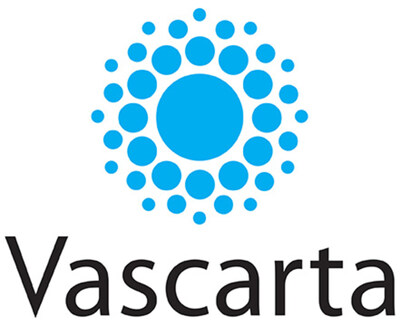
SUMMIT, N.J., Nov. 3, 2025 /PRNewswire/ — New findings demonstrating a reversal in acute vaso-occlusive pain in sickle cell disease by a novel transdermal curcumin gel formulation to be presented* at the 67th Annual American Society of Hematology meeting in Orlando.
This study first tested the hypothesis that in a murine model of hypoxia/reoxygenation (H/R) triggered vaso-occlusive crisis, IL-17 induces TNF-α, IL-6, and p38 phosphorylation that subsequently leads to oxidative stress, neuronal damage and severe pain. Anti-IL-17A antibodies administered intrathecally prior to inciting hypoxia/reoxygenation (H/R) significantly reduced mechanical, thermal, and musculoskeletal hyperalgesia compared to vehicle treated sickle mice. A post-H/R analysis showed decreased IL-17 and TNF- α in the spinal cords of anti-IL-17 antibodies treated sickle mice compared to those treated with vehicle. These two findings suggest that spinal IL-17 plays a critical role in evoking acute hyperalgesia by regulating inflammatory cytokines.
The study next examined if the novel transdermal curcumin (TDC; VAS-101; Vascarta Inc.) known to reduce chronic inflammation, hyperalgesia and oxidative stress in the same sickle cell murine model has the potential to inhibit spinal inflammation, oxidative stress, and p38 phosphorylation in response to an acute H/R challenge. Mice treated with daily VAS-101 for two weeks showed lowered mechanical and cold sensitivity post H/R versus vehicle treated mice. They also exhibited significantly increased grip strength. Thus, pre-treatment with VAS-101 significantly reduced H/R-induced hyperalgesia. As with mice treated with anti-IL-17 antibodies, VAS-101 pre-treated mice showed a decrease in multiple cytokines including IL-17, IL-6, and TNF-α.
In a continuation of this study, VAS-101 reduced reactive oxygen species in both HT22 hippocampal neurons exposed to TNF-α + hemin ± CoCl₂-induced hypoxia and in DRG neurons from sickle mice. Further, VAS-101 preserved mitochondrial membrane potential. The investigators conclude that IL-17 orchestrates acute pain by promoting the IL-17-TNF-α/IL-6–p38 cascade in the CNS and periphery, leading to oxidative stress and mitochondrial dysfunction in sensory neurons. VAS-101 interrupts this SCD pathophysiological cascade, suggestive of a preventive effect on acute pain episodes in SCD.
Together these results have positive implications for a transdermal treatment to prevent many cognitive sequelae associated with chronic pain which are driven by the same neuro-inflammatory processes addressed in the current studies.
Principal investigator, Professor Kalpna Gupta (University of California – Irvine), stated that: “These breakthrough findings about the beneficial effects of the transdermal curcumin gel on nervous system, organs, and red blood cells were generated through an ongoing collaboration among scientists from several institutions, including the University of California – Irvine, the US Food and Drug Administration (FDA), and Albert Einstein College of Medicine.”
Professor Joel Friedman (Albert Einstein College of Medicine and inventor of Vascarta’s patented transdermal drug delivery technology) explained that: “These results are consistent with multiple other preclinical studies that have shown, for example, therapeutic benefits of VAS-101 for inflammation, pain, cytokine storm, endothelial integrity, hypertension, aging related physical and cognitive decline. This new study indicates that VAS-101 has the potential to not only limit the chronic manifestations of SCD but also to prevent the acute pain episodes associated with hypoxia triggered occlusive crisis”.
* ” Mechanism-based treatable targets for organ damage and pain in sickle cell disease”
Goel Y, Argueta D, Mireles C, Lomeli R, Prince R, Friedman J, Gupta K. Mechanisms of acute pain involve spinal IL17–TNF-α/IL-6–p38 MAPK activation in sickle cell disease. (Abstract #abs25-7273).
#abs25-7273 received the 2025 ASH Abstract Achievement Award.
About Sickle Cell Disease
Sickle cell disease is the most common inherited disease that primarily affects African Americans and Hispanics in the United States. Individuals with sickle cell disease may experience serious health complications, such as chronic pain, stroke, lung problems, eye problems, infections, and kidney disease, along with periodic acute pain crises. Pain is a significant burden in the day-to-day lives of those living with sickle cell disease, with VOC being the number one reason these patients present to the emergency department.
About Vascarta Inc.
Vascarta is a healthspan-focused, clinical-stage biopharmaceutical company pioneering topical/transdermal therapies to restore vascular and immune function driven by inflammation, vascular dysfunction, and immune imbalance. More information can be found at www.vascarta.com.
Publication Authors & Affiliations
Targeting sickle cell pathobiology and pain with novel transdermal curcumin (PNAS Nexus, 2025, 4, pgaf053
Yugal Goela, Mya A. Arellanoaa, Raghda T. Foudaa, Natalie R. Garciaa, Reina A. Lomelia, Daniel Kerrb, Donovan A. Arguetaa, Mihir Guptac, Graham J. Velascod, Richard Princee, Probal Banerjeeb, Sirsendu Janaf, Abdu I. Alayashf, Joel M. Friedmane,g, and Kalpna Guptaah*
aHematology/Oncology Division, Department of Medicine, University of California, Irvine, CA 92697, USA
bDepartment of Chemistry and Center for Developmental Neuroscience, The College of Staten Island (CUNY), Staten Island, NY 10314, USA
cDepartment of Neurosurgery, Yale School of Medicine, New Haven, CT 06520, USA
dPathology Department, VA Long Beach Medical Center, Long Beach, CA 90822, USA
eVascarta, Inc., Summit, NJ 07446, USA
fLaboratory of Biochemistry and Vascular Biology, Center for Biologics Evaluation and Research, Food and Drug Administration, Silver Spring, MD 20903, USA
gDepartment of Microbiology and Immunology, Albert Einstein College of Medicine, Bronx, NY 10461, USA
hDivision of Hematology, Oncology and Transplantation, Department of Medicine, University of Minnesota, Minneapolis, MN 55455, USA
*Corresponding Publication Author Email: Kalpna Gupta ([email protected])
Vascarta contact:
Richard Prince, PhD – Chairman, Chief Executive Officer & President
Email: [email protected]
View original content to download multimedia:https://www.prnewswire.com/news-releases/vascarta-inc-transdermal-curcumin-vas-101-drug-candidate-interrupts-the-neuroinflammatory-pathophysiological-cascade-associated-with-acute-sickle-cell-crisis-302602960.html
SOURCE Vascarta Inc


